“If it doesn’t fit, you must acquit.” -Johnnie Cochran
That quote from the closing arguments in the murder trial of NFL star O.J. Simpson is among the most famous words ever uttered in a courtroom.
Some thirty years later, the very gloves at the center of the slayings of Nicole Brown and Ron Goldman remain carefully preserved and guarded at the offices of the Los Angeles County District Attorney.
Why?
While the case against Orenthal James Simpson may have been closed with his acquittal in criminal court, the question of who murdered Nicole Brown and Ronald Goldman, at least in the eyes of the law, officially remains open.
Because of that, boxes and boxes of evidence have been carefully preserved by prosecutors in case they are ever needed in the future, including those notorious gloves.
Last summer, we contacted the D.A.’s office about viewing some of the key evidence in the Simpson case and received this response.
At the time, we were told by the DA’s office: the “LADA is concerned about the physical breakdown and/or degrading of the glove and other tangible evidence over time and the potential re-victimization of the families of Nicole Brown Simpson and Ronald Goldman in allowing public viewings and/or handlings.”
Understandable.
However, the District Attorney’s office did provide a glimpse of what remains safely stored for history in case there are ever any new developments in this case: At least eight boxes of evidence, carefully cataloged page by page on an Excel spreadsheet titled “People V Orenthal James Simpson.”
Among the items: photos, forensic evidence, trial exhibits, coroner reports, DNA samples, notes from controversial detective Mark Fuhrman and a green binder marked “Furhman interviews.”
Some items that have become synonymous with the trial are also stored: the “Brown Bruno Magli Shoe Box,” documents such as “shoe prints at Bundy,” color Polaroid photos, and others titled “Bronco exterior.”
There are items that seem insignificant but go to the heart of the fact that two people were brutally murdered: DMV photos of Nicole Brown and Ron Goldman, Ron’s timecard from the restaurant where he worked.
Many of the items are preserved with the title “Trail of Blood: The People V. O.J. Simpson.”
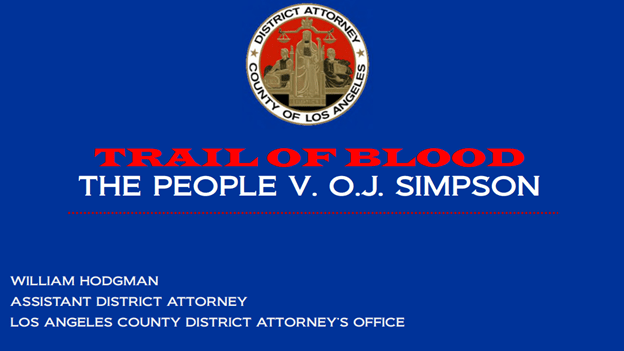
The documents—included a timeline of the trial leading up to that 1995 verdict.
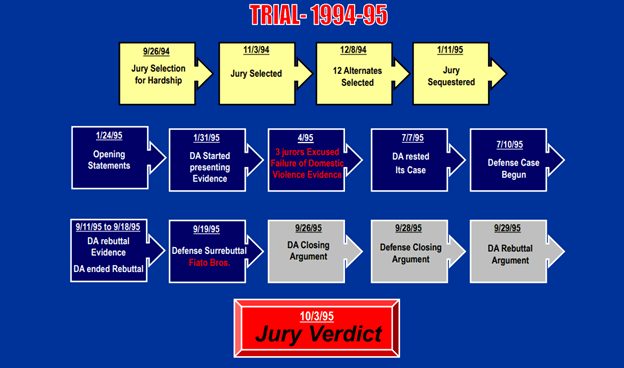
In the trial exhibits, crime scene photos, many too gruesome to publish. Shoe prints, that infamous white Ford Bronco.

Pictures of the notorious glove:
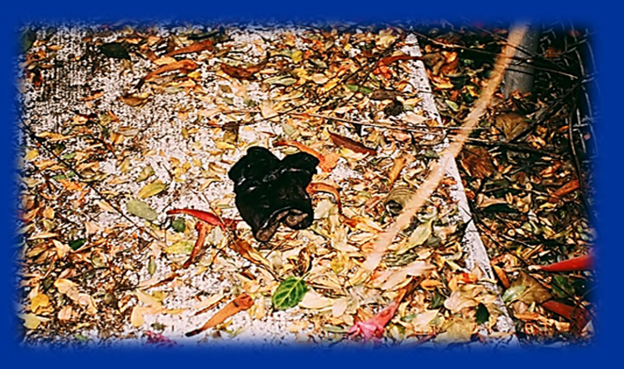
Evidence photos taken inside the home of O.J. Simpson:
Simpson’s first mug shot:
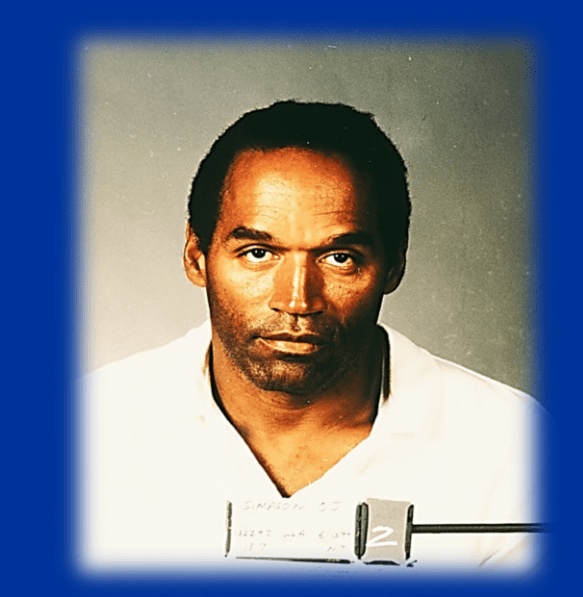
The mystery injury to his finger:
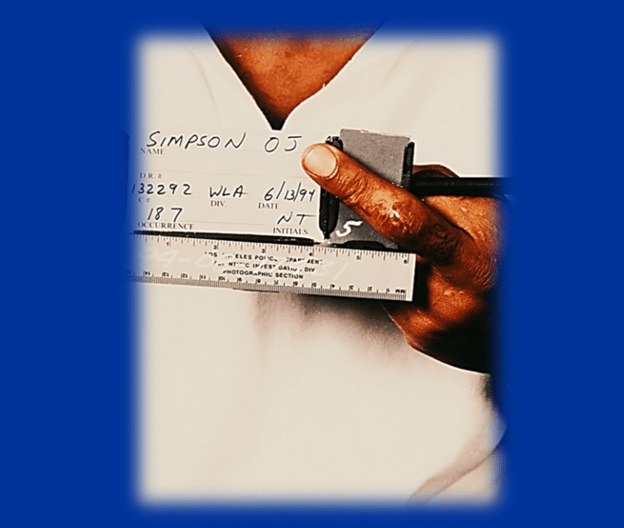
His passport:
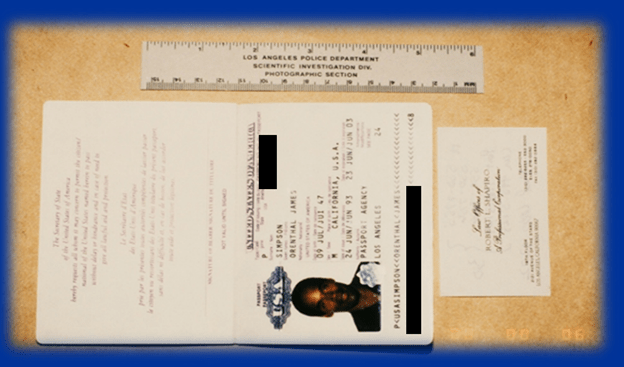
Hair and Hair Dye:
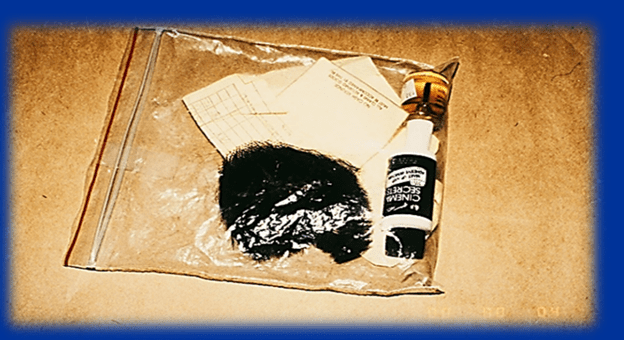
A document from prosecutors laying out -what they called- “unrefuted evidence” proving O.J. Simpson murdered Ron and Nicole.
With no other suspects ever identified, let alone charged, it is likely that this evidence will remain in storage for perpetuity.
“As with all murder cases like the O.J. Simpson case, unless there’s an actual arrest or conviction to prove that we have actually closed the case, the cases remain open,” a Los Angeles Police Department captain told us in 2016.












